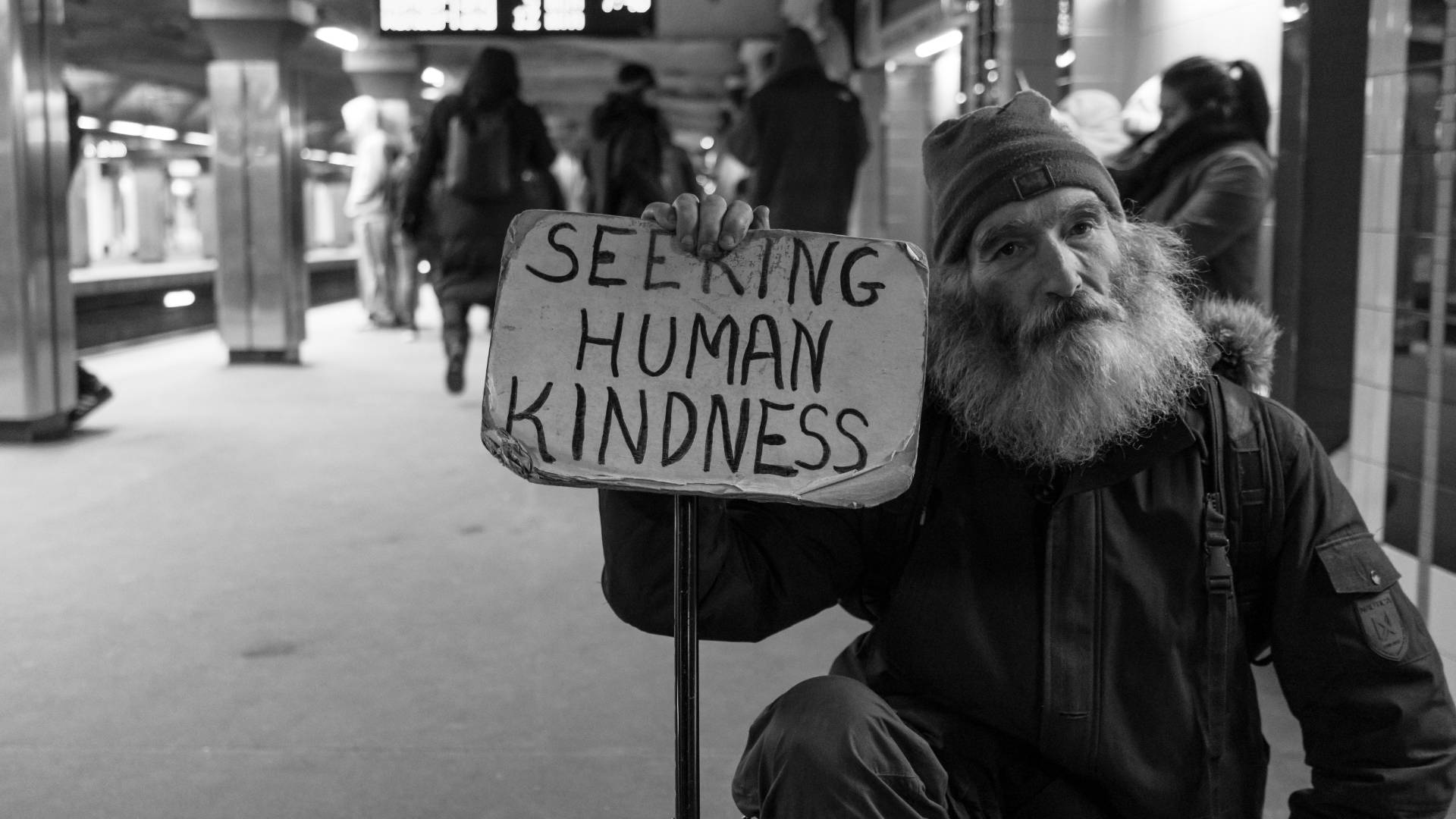
Mark Greenwood
Why we need to show that we care
In the second part of his series on evangelism, Mark Greenwood examines the importance of caring actions.
It was a cold winter morning and I was sitting in the assembly hall of my middle school waiting for the headteacher to start. Mrs Darby, the music teacher, played the first line of the song, slowing as she reached the end of it, leaving a pregnant pause. As she hit the first note of the first line again, this time with greater ferocity to signal us to join in, we did so, not quite like a finely rehearsed choir but with good volume nevertheless...
When I needed a neighbour, were you there, were you there?
When I needed a neighbour, were you there? And the creed and the colour and the name
won’t matter, were you there?
I was hungry and thirsty, were you there, were you there?
I was hungry and thirsty, were you there? And the creed and the colour and the name
won’t matter, were you there?
I was cold, I was naked, were you there, were you there?
I was cold, I was naked, were you there? And the creed and the colour and the name
won’t matter, were you there?
When I needed a shelter, were you there, were you there?
When I needed a shelter, were you there? And the creed and the colour and the name
won’t matter, were you there?
When I needed a healer, were you there, were you there?
When I needed a healer, were you there? And the creed and the colour and
the name won’t matter, were you there?”
I used to sing this song with great enthusiasm but, if I am honest, it was only ever repetitive words with a bouncy tune. Though I may not sing the song these days, the words remain an incredible challenge.
Historically, many churches at the more conservative/evangelical end of the Church haven’t really focused a lot on social action and caring for those who live in the margins. We have often relegated it to being of secondary importance at best and left it to the more liberal end of the Church.
I am really excited by the growing numbers of Elim churches actively involved in community engagement as we realise the need to do so – even the acknowledgement that it is a part of the mission of God. We want to be known by our caring actions. In Acts 10:37-38, Luke says, “You know what has happened throughout the province of Judea, beginning in Galilee after the baptism that John preached – how God anointed Jesus of Nazareth with the Holy Spirit and power, and how he went around doing good and healing all who were under the power of the devil, because God was with him.” Quite apart from the fact Jesus did lots of miracles, Luke sees fit to draw our attention to the truth that Jesus went around doing good!
An example of this was when he fed the 5,000 and then spoke to them. Again, Jesus placed a massive emphasis on ‘whatever you did for the least of these, you did for me’, referencing, of course, giving cups of water to the thirsty and clothing the naked in his name. Echoes of the song from my assembly synergise with the life of Jesus and what he expects of us as we follow him.
In Elim, we believe in demonstrating God’s kingdom in actions. My concern is that we can do this purely as a means to preach, but actually we should do it because we care.
I am not keen on the phrase ‘before we feed people spiritually we should feed them physically to earn the right’. For me, Jesus has given us the authority to preach and to care. We do it because we love God, and loving God must be accompanied by loving our neighbour. We want to see the numbers of Elim churches engaging in their communities significantly increasing. Imagine being known throughout Elim Global as a Movement that cares!
A friend of mine often says, “People won’t care what you know until they know that you care.” We have an amazing opportunity to show people we care. As Christians we are often known by what we are against, but imagine being known by what we are for!
Let’s tell the better story. Sometimes the best way of doing this is by being kind in our communities. As we do this we change the perceptions many have of the Christian faith, creating a whole lot of healthy ‘maybe’ connections; some will definitely become ‘little yes’ people and later become ‘big yes’ people.
When the question is asked, “Were you there?” It would be amazing if the loudest voices in the choir were Elim voices singing the last verse...
“Wherever you travel, I’ll be there. Wherever you travel, I’ll be there. And the creed and the colour and the name won’t matter. I’ll be there."
Continue to part 3: We need to re-dig the well of the supernatural
Enjoy this article? Don't forget to share